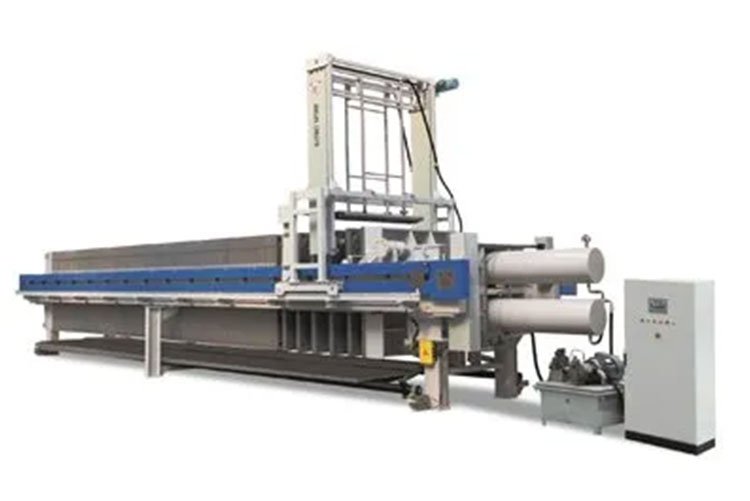
How Does a Sludge Filter Press Work?
A sludge filter press consists of a series of filters, which are arranged in a stack. The sludge is pumped into the top filter, which is designed to capture the largest particles.
The filtrate then passes through each subsequent filter, with each one capturing smaller particles, until the final filter, which produces a clear liquid. The resulting cake is then removed from the filter press and disposed of or further processed.

Features of Sludge Filter Press
The sludge filter press has several features that make it an ideal choice for wastewater treatment plants. Some of these features include:
High efficiency: Sludge filter presses can achieve a high level of dewatering, resulting in a dry cake that can be easily disposed of or reused.
Versatility: Sludge filter presses are popular for various applications, including sludge dewatering, slurry separation, and liquid-solid separation.
Cost-effective: Sludge filter presses are a cost-effective solution for wastewater treatment plants, as they require minimal energy and maintenance.
Easy operation: Sludge filter presses are easy to operate, with a simple and intuitive control system.
Applications
Sludge filter presses have a wide range of applications in different industries, including:
Wastewater treatment plants: Sludge filter presses are commonly used in wastewater treatment plants to dewater sludge and produce a biosolid that can be used as fertilizer or disposed of in a landfill.
Chemical processing: Sludge filter presses are used in chemical processing plants to separate liquids from solids and produce a pure product.
Food and beverage industry: Sludge filter presses are used in the food and beverage industry to separate liquids from solids and produce a pure products.
Mining industry: Sludge filter presses are used in the mining industry to separate liquids from solids and produce a pure product.

Benefits of Sludge Filter Press
The press has several benefits, including:
High-quality product: The press produces a high-quality product that is free from impurities.
Increased efficiency: The sludge filter press increases the efficiency of the wastewater treatment process, resulting in a higher level of dewatering.
Cost savings: The filter press is a cost-effective solution, as it requires minimal energy and maintenance.
Environmental benefits: The filter press helps to reduce the amount of waste produced by wastewater treatment plants. Which can help to protect the environment.
Conclusion
In conclusion, the press is a versatile and efficient piece of equipment that is widely used in various industries. Its high efficiency, versatility, cost-effectiveness, and ease of operation make it an ideal choice for wastewater treatment plants.
By using a sludge filter press, businesses can produce a high-quality product. Increasing efficiency, saving costs, and helping protect the environment.

这个机器很不错